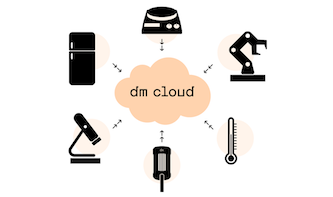Shares of Glasgow-based DeepMatter Group plc, the AIM-listed company focusing on digitizing chemistry, rose about 5% on Thursday after it announced a collaboration with the University of Cambridge’s Innovation Centre in Digital Molecular Technologies.
“DeepMatter … has commenced a project with the University of Cambridge’s Innovation Centre in Digital Molecular Technologies (iDMT), an open innovation research centre co-funded by the University of Cambridge, AstraZeneca, Shionogi, and the European Regional Development Fund,” said the Glasgow firm.
“DeepMatter will provide its DigitalGlassware platform to iDMT as part of the development of a fully digital workflow in the discovery and development of new molecules, materials, reactions and processes.
“This initiative is part of DeepMatter’s ongoing programme to be closely involved with key opinion leaders in the major universities’ emerging digital chemistry units and follows on from its collaborations with the Universities of Leeds, Glasgow, Sheffield and Nottingham.
“The iDMT is a new initiative set up to enable the transformation of chemistry into the fully digital domain including the increased usage of data science, data standardisation, algorithms for discovery and development, automated analytical chemistry, and robotic equipment.
“The iDMT supports collaborative research projects with small and medium enterprises (SMEs) from across the UK, aiming to develop a technology base to support the emerging digital economy in the third largest manufacturing sector in the UK.
“DigitalGlassware comprises a cloud-based software platform allowing scientists to easily bring together digitised synthesis protocols (recipes) and contextualised time-course sensor streams from a range of analytical instrumentation, importantly in real-time.
“The project will be based in the Yusuf Hamied Department of Chemistry within the University of Cambridge and led by Alexei Lapkin, Professor of Sustainable Reaction Engineering at the University.”
DeepMatter Group CEO Mark Warne said: “This is another important step in rolling out our flagship platform DigitalGlassware, with the key opinion leaders in the academic world allowing us to demonstrate publicly its ability to discover new molecules and routes to molecules in a way that would not otherwise be able.
“The expertise we can garner by engaging with these influential institutions will be invaluable in helping us to innovate our platform even further.
“We are now establishing DigitalGlassware as the go-to platform for capturing and structuring time-course sensor data in the lab, to enable improved insights for better productivity and discovery.
“The establishment of iDMT is an exciting development for our industry, aiming to spark a digital transformation in the chemical industries.
“We have a shared focus on data capture and standardisation, data science and robotics and we are looking forward to working within the digital chemistry space at one of the world’s leading universities.”
